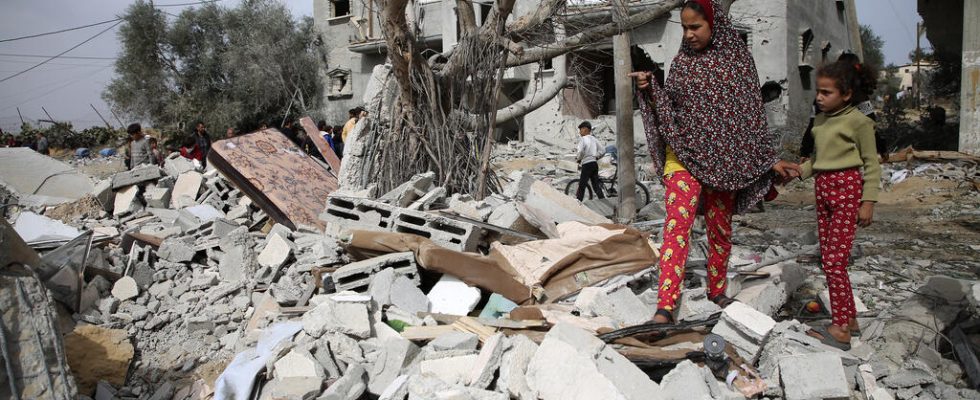The Gazan population is plunged into a serious humanitarian crisis. 34,700 deaths, according to the latest report from the Palestinian Authority Ministry of Health. Besieged, civilians die under bombs, and they also lose their lives because of the consequences of the war: malnutrition, lack of water, lack of care.
1 min
With our correspondents in Gaza and Jerusalem, Rami Al Meghari And Sami Boukhelifa
Al Maghazi, center of the strip Gaza. A huge crater. One more scar in a desolate landscape, crushed by bombings. Burst pipes. “ The air is unbreathable », says Jumana, a young displaced person. “ The smell is nauseating. Look at this crater, and this water pouring into it, it’s disgusting. We suffer from allergies, we are devoured by mosquitoes. We can’t even sleep anymore. »
Humanitarian, health and environmental disaster. “ Gaza is no longer conducive to life », Regrets Khaled, another resident of the neighborhood: “ The children got scabies. Summer is approaching, and we can’t live indoors. But when you open the windows, it smells like landfill. And we don’t even have electricity to run a fan and ventilate. »
Craters of sewage, mountains of trash. Gaza in ruins, buried under rubbish. Mohamed Al-Berr is head of public health in the Palestinian Authority. He works at the Al Maghazi town hall, which has set up an improvised landfill, not far from the residential areas: “ Every day, twenty tons of waste are collected in Al Maghazi and dumped here in this landfill, where 3,500 tons of waste now accumulate. We hope that the war will end soon, so that traditional landfills can be reused. » They are located on the outskirts of Gaza. “Military zone prohibited from access,” he explains.
Read alsoWar in Gaza: Israel bombs two neighborhoods of Rafah, where it ordered the evacuation of 100,000 people
